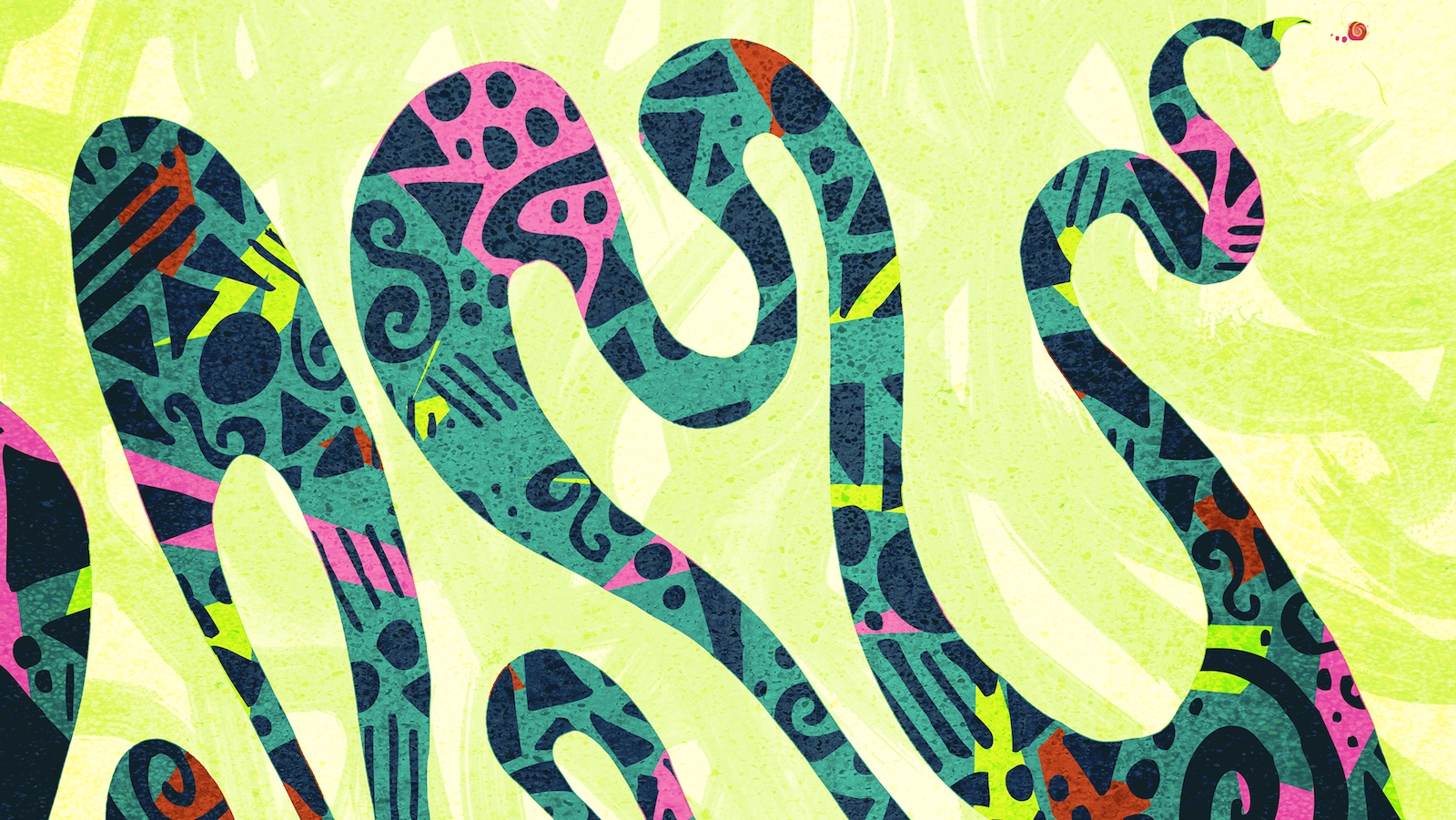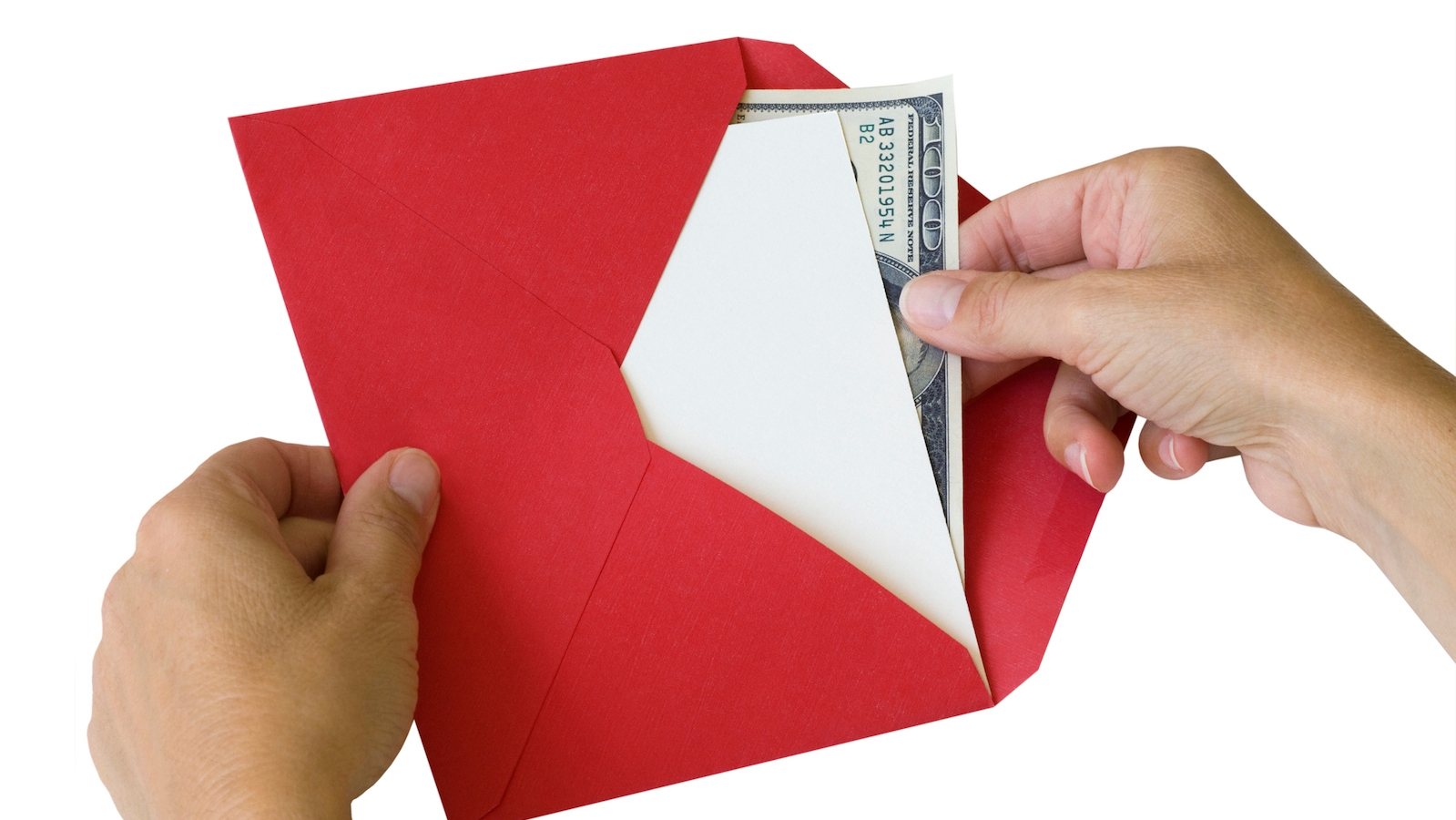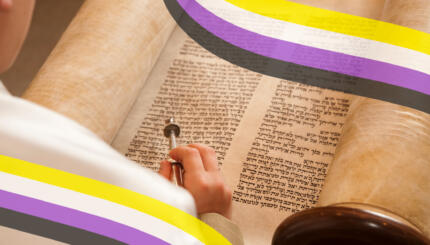Finding the right bar/ gift can be tricky.
For starters, there’s the gravity of the occasion: a once-in-a-lifetime rite of passage. Add to that, the recipient is 13, an age when a person’s interests and tastes are in flux and when anything an adult says or does can seem completely out-of-touch and uncool. Plus, we are often invited to this occasion not because we are close to the bar/bat mitzvah child and know his or her tastes, but because we are extended family or are friends of the child’s parents.
READ: What A Bar/Bat Mitzvah Guest Needs to Know
That’s why we’re here to help you find something that you feel good about and that the recipient actually likes. Best of all, everything on our list can be ordered online (although we also encourage you to check out your local Judaica shops and bookstores). So read on — or, if you prefer, click directly on the categories below to skip the chatter and get straight to the gift ideas! Please keep in mind that prices fluctuate, so think of the prices we list as general guides and not guarantees. While our recommendations are mostly Jewish items (because that’s our area of expertise), it’s also perfectly appropriate to give gifts — such as jewelry, accessories, watches or anything related to the child’s hobbies or interests — that have nothing to do with Judaism or Israel.

Help us keep Jewish knowledge accessible to millions of people around the world.
Your donation to My Jewish Learning fuels endless journeys of Jewish discovery. With your help, My Jewish Learning can continue to provide nonstop opportunities for learning, connection and growth.
Gifts By Category:
• Money and Bonds
• Judaica
• Jewelry
• Torah Art
• Charitable Gifts
• Books
Did we overlook a great bar/bat mitzvah gift idea? Leave your suggestions in the comments below.
Should You Give Money — And How Much?
Cash is undoubtedly convenient for all involved and can be used for something the bar/bat mitzvah child wants right now or socked away into savings accounts. Checks are traditionally written out in $18 increments, marking the Hebrew letters for the word life (chai), which are numerically equivalent to 18. That said, no one will be offended if you give them a more rounded number, like $50 or $100 — or whatever you can comfortably afford.
You can also consider a gift card.
Meanwhile, Israel Bonds’ Mazel Tov Bonds and eMitzvah Bonds support the Jewish state and can be redeemed in five years, when the bar/bat mitzvah is approaching college-age. We’ve also heard of giving Israeli currency, as a way to encourage the recipient to visit Israel at some point.
Judaica
Since many others also will opt to give Jewish ritual objects, we recommend sticking to items that are small and that you might want more than one of. Think menorah, candlesticks or (charity) box, rather than shofar or seder plate.
Shabbat Candlesticks
Some Shabbat candlesticks we like are these nickel ones engraved with the Hebrew blessing ($31), these hand-painted wooden ones featuring a pomegranate design ($21) and these silver-plated and engraved ones ($22) that fold up into a little ball when not in use. These electric LED bulb candles ($18) can be set to a timer, and while they aren’t gorgeous, they are dorm-room-friendly and better than many other electric ones on the market.
Another option is glass candlesticks ($48) from Fair Trade Judaica, which “promotes economic partnerships based on equality, justice and sustainable environmental practices.
Hanukkah Menorahs
In particular, we recommend travel-size Hanukkah menorahs (also called Hannukiyot), which can be taken on trips and (the electric ones at least) used in dorm rooms when the bar/bat mitzvah child goes to college. There are fewer aesthetic options when you’re limited to electric menorahs, but most dorm fire codes forbid students from lighting actual candles in their rooms. The nice thing about menorahs (whether electric or traditional) is that even before the bar/bat mitzvah child leaves home, she or he can enjoy having his or her own to light on Hanukkah, when the more light the merrier.
Both this silver tone electric menorah ($31) and pewter plated one ($36) are low voltage and lack the tackiness of many electric Hanukkah lamps, making them perfect for dorm-room Hanukkah celebrations. A non-electric, but practical alternative is this two-in-one (or 11-in-one, depending on how you count it) hand-painted Shabbat candlestick set that converts into a menorah. ($40)
Mezuzahs
A mezuzah is a small box that is placed on the right doorpost of Jewish homes and often also on the entryway to each room — so the bar/bat mitzvah child may want to affix one to his or her bedroom doorpost. Inside the box is a parchment scroll with verses from the inscribed on it, including the Shema prayer (Deuteronomy 6:4-9, 11:13-21).
We’re fond of this stainless steel one with Swarovski stone pomegranates ($70) pictured on the right, as well as this handmade jeweled mezuzah case ($70) — but you’ll find myriad options at a wide range of price points on Amazon and in your local Judaica store.
Tzedakah Boxes
It’s traditional to put money into a tzedakah (charity) box each week before lighting the Shabbat candles, and some people like to collect these boxes. Like the glass candlesticks above, this hand-carved and engraved wooden tzedakah box ($45) is offered through Fair Trade Judaica.
We also like this brightly painted one in the shape of a Jewish star ($50).
Jewelry
The Jewish star, or Star of David, is a classic option in necklace pendants, and they’re widely available in silver ($29), gold ($30) and other materials. In recent years, another symbol — the hamsa — has become increasingly popular in Israel and around the world. An eye embedded in a hand, the has Middle Eastern roots and is a sort-of good-luck charm. Find hamsa pendants here. The word chai, Hebrew for life, also is a popular Jewish symbol for jewelry. You can find chai pendants here.
In addition, a search for Israeli jewelry on Etsy yielded many Israeli artisans (including ones that display at Tel Aviv’s popular twice-weekly Nahalat Binyamin market). There are also Etsy stores, such as this one, where you can purchase other Israeli-made items. Another great source for Israeli jewelry (and other products made by Israeli artists) is The Sabra Patch, an Etsy-like startup with the motto “Handmade in the Holy Land.”
Torah Art

A particularly meaningful gift is artwork based on the bar or bat mitzvah’s Torah portion. Just make sure it is returnable, since you and the bar/bat mitzvah child might have different feelings about what will look good on his or her bedroom wall — and duplicates probably won’t be appreciated. Also make sure you are certain about the Torah portion the bar/bat mitzvah will be chanting — it does not always correspond with the date on which the ceremony falls. Michal Meron Studios creates colorful illustrated Torah portions that range from $150-350, depending on size and whether you buy it framed or unframed. Christina Mattison’s Drash Designs interpret the portion through a more abstract lens and range in price from $15-20 (unframed).
Charitable Gifts
One of the core tenets of Judaism is tzedakah (charity). Making a donation in honor of the bar or bat mitzvah is a meaningful way to incorporate the Jewish (and universal) value of helping those in need. You can personalize this type of gift even further by donating to a cause about which the bar or bat mitzvah feels passionate. Better yet, give a “gift card” that can be used to fund a project of their choosing.
With a Kiva card, the bar or bat mitzvah can choose among thousands of projects helping people in developing countries and give them micro-loans. Similarly, Donors Choose sells gift cards that enable recipients to support small teacher-run projects in public schools. A Jewish counterpart, The Tzedakah Network, matches donors with a wide range of causes and mitzvah projects (fundraising/social justice efforts launched by kids as part of their bar/bat mitzvah preparation). Other options such as CharityChoice, JustGive.org and Israel Gives sell gift cards that can be redeemed to make donations to hundreds of organizations. You can explore all these sites (Israel Gives focuses on Israeli nonprofits) to see which has more groups or projects you and the bar/bat mitzvah child would want to support.
Books
Jewish Humor
William Novak and Moshe Waldoks’ classic Big Book of Jewish Humor ($17) has long been a popular bar/bat mitzvah gift. A newer option, Michael Krasny’s Let There Be Laughter:A Treasury of Great Jewish Humor and What It All Means ($14) just came out in fall of 2016 and boasts blurbs from such luminaries as documentary filmmaker Ken Burns and New Yorker humor writer Andy Borowitz.
Jewish Text Study
Jeffrey Salkin’s Text Messages: A Torah Commentary for Teens ($17), which addresses such issues as tattoos, social justice and sexuality and gender issues, is another good option.
Jewish Fiction
To introduce the bar/bat mitzvah child to today’s Jewish fiction writers, try The New Diaspora: Changing Landscape of American Jewish Fiction ($36), which offers a sampling from contemporary writers like Rebecca Goldstein, David Bezmogis and Jonathan Safran Foer. Alternately, expose your young reader to Latin American Jewish culture, with Ilan Stavans’ newly published Oy Caramba! An Anthology of Jewish Stories from Latin America ($23). Or give them the classics with Jewish American Literature: A Norton Anthology ($43).
Jewish Young-Adult Novels
There are also many good young-adult novels with Jewish themes and characters. Some we recommend (especially for girls) are:
- Nick and Norah’s Infinite Playlist (Rachel Cohn and David Levithan), about a Jewish teen who, before she leaves for a year on kibbutz in Israel, connects with a non-Jewish boy on what Tablet’s Margorie Ingall describes as an “epic urban whirlwind marathon date.” ($8)
- Intentions (Deborah Heiligman), a 2013 winner of the Sydney Taylor Award for Teen Readers, is about a teenage girl struggling with family problems, romance — and an ethical dilemma concerning her rabbi. ($10 on Kindle)
- Isabel’s War (Lila Perl), set in the Bronx during the 1940s, tells the story of a Jewish girl whose life changes when a German Jewish refugee girl comes to live with her family. ($11 on Kindle)
- Like No Other (Una LaMarche) details the love story that ensues after a girl and her African-American neighbor get stuck in an elevator together in Brooklyn. ($10)
Jewish History and Culture
Both Great Jewish Women ($30) and Great Jews in Sports ($30) feature bite-sized entries that will inspire and entertain. We’re guessing the Jewish women one will be more popular with girls than boys, but we’re not going to make any stereotypical judgments on the sports one.
Many young American Jews wrongly assume all Jews have backgrounds and lifestyles similar to their own. Set your new adult straight with Scattered Among The Nations ($42), a beautiful coffee table book that highlights the international diversity of Jewish life. Another beautiful book bar/bat mitzvah kids can leaf through at their leisure is Passage to Israel ($29), which has photos that may inspire the bar/bat mitzvah child to learn about and visit the Jewish state.
Jewish Cookbooks
Does this bar/bat mitzvah child like cooking, or at least eating? The Gefilte Manifesto: New Recipes for Old World Jewish Foods ($24) and Modern Jewish Cooking: Recipes & Customs for Today’s Jewish Kitchen ($26), both published by young writers, offer contemporary (i.e. flavorful and a bit more health-conscious) versions of classic Jewish dishes.
For more Jewish book ideas, check out the Sydney Taylor Book Awards list, as well as the awards lists (and other recommendations) on the Jewish Book Council‘s website.
Did we overlook a great bar/bat mitzvah gift idea? Leave your suggestions in the comments below.
kosher
Pronounced: KOH-sher, Origin: Hebrew, adhering to kashrut, the traditional Jewish dietary laws.
mezuzah
Pronounced: muh-ZOO-zuh (oo as in book), Origin: Hebrew, a small box placed on the right doorpost of Jewish homes. It contains a parchment scroll with verses from the Torah inscribed on it, including the Shema prayer (Deuteronomy 6:4-9, 11:13-21).

 Cash is undoubtedly convenient for all involved and can be used for something the bar/bat mitzvah child wants right now or socked away into savings accounts. Checks are traditionally written out in $18 increments, marking the Hebrew letters for the word life (chai), which are
Cash is undoubtedly convenient for all involved and can be used for something the bar/bat mitzvah child wants right now or socked away into savings accounts. Checks are traditionally written out in $18 increments, marking the Hebrew letters for the word life (chai), which are 


